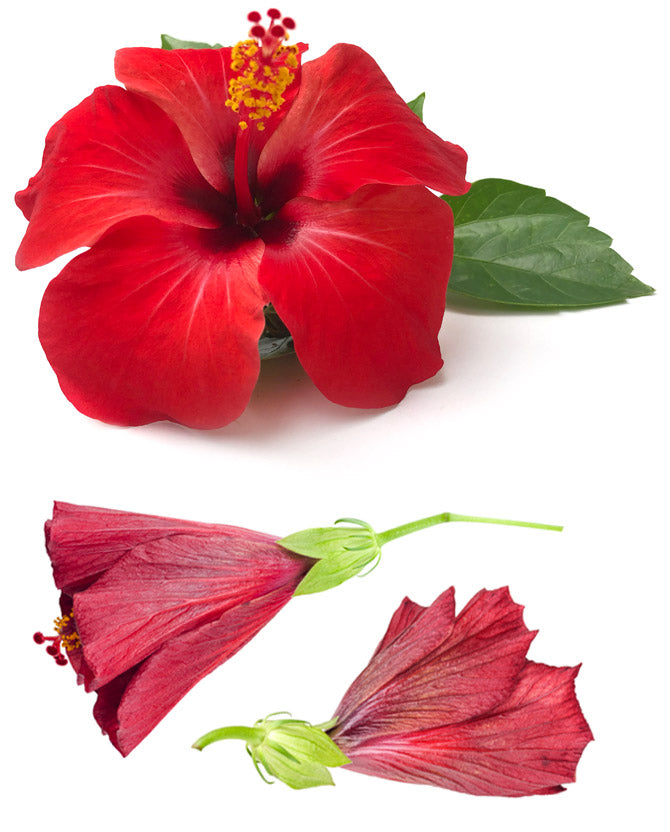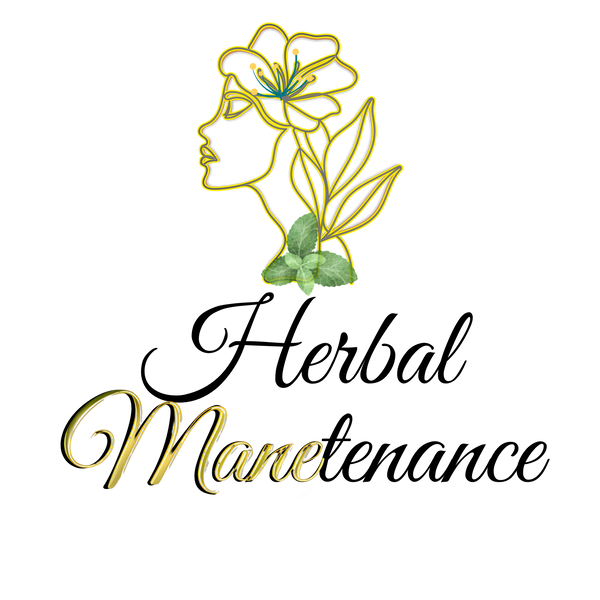Herbal Manetenance Ingredients
Hibiscus
Hibiscus
Hibiscus rosa-sinensis
Composition
Composition
1.Anthocyanins:These pigments are responsible for the vibrant red color of Hibiscus and are a major source of its antioxidant activity.2.Flavonoids:These compounds, likequercetinandkaempferol,also contribute to antioxidant properties and may have other beneficial effects.3.Phenolic Acids:These acids, like chlorogenic acid and gallic acid, can also act as antioxidants and have other health-promoting properties.4.Organic Acids:Hibiscus contains various organic acids, including citric, malic, and tartaric acids, which contribute to its tart taste and may have other beneficial effects.5.Other Compounds:Hibiscus also contains other compounds like glycosides, terpenoids, alkaloids, and polysaccharides, some of which may also contribute to its biological activities.
Origins
Origins
Hibiscus is native to West and East Africa, and has been present on the continent for a long time.African varieties include Kenaf, Roselle, and Okra.
Did you know?
Did you know?
- Hibiscus has been used traditionally to treat ailments like liver problems and high blood pressure, and research supports these claims.
- Hibiscus fibers can be used to make ropes and other textiles, and the seeds are used in cosmetics.
- The yellow hibiscus is the state flower of Hawaii.
- In some cultures, a hibiscus flower tucked behind the ear signifies marital status.
Share

Collapsible content
HAIR BENEFITS
- Promotes Hair Growth:Hibiscus contains amino acids and flavonoids that can stimulate hair growth by increasing blood circulation to hair follicles and activating dormant follicles.
- Strengthens Hair:Hibiscus helps strengthen hair strands, making them less prone to breakage and split ends.
- Prevents Dandruff and Itchy Scalp:Hibiscus can help regulate oil production on the scalp, which can reduce dandruff and alleviate itching.
- Conditions and Hydrates Hair:Hibiscus acts as a natural conditioner, providing hydration and making hair smoother and more manageable.
- Adds Shine and Volume:Hibiscus can add shine to hair and increase volume, making it look fuller and healthier.
- May Delay Premature Graying:Hibiscus contains antioxidants and vitamins that can help prevent premature graying.
- Reduces Split Ends:Hibiscus oil can help soften hair and prevent split ends.
- May Help with Hair Loss:Some anecdotal evidence suggests hibiscus can help reduce hair loss.
SCALP / SKIN BENEFITS
Hibiscus Benefits for Scalp:
- Reduces dandruff and itchiness:Hibiscus has antibacterial and antifungal properties, helping to combat scalp infections and soothe irritation.
- Promotes hair growth:Hibiscus contains vitamins, amino acids, and antioxidants that nourish hair follicles and stimulate growth.
- Balances scalp pH:Hibiscus can help regulate oil production and maintain a healthy scalp environment.
- May reduce premature greying:Hibiscus contains pigments that can help mask grey hairs and potentially prevent premature greying.
- Reduces hair fall:Some studies suggest hibiscus can strengthen hair follicles and reduce hair loss.
Hibiscus Benefits for Skin:
- Moisturizes and hydrates:Hibiscus is rich in mucilage, a natural moisturizer that helps skin retain hydration.
- Reduces inflammation and redness:Hibiscus's anti-inflammatory properties can soothe skin irritation and reduce redness.
- May improve skin tone and texture:Some studies suggest hibiscus can help even out skin tone and reduce hyperpigmentation.
- Cleans pores and removes impurities:Hibiscus's natural surfactants can help cleanse the skin and remove dirt and oil buildup.
- May protect against aging:Antioxidants in hibiscus can help protect skin against damage from free radicals.

